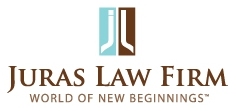What does the US Supreme Court latest decision mean for DACA recipients
On June 18, 2020, the U.S. Supreme Court ruled that Department of Homeland Security’s (DHS) decision to rescind the Deferred Action for Childhood Arrivals (DACA) program was arbitrary and capricious under the Administrative Procedures Act because the DHS failed to consider important aspects of the problem – whether to continue only the deferred action part of the DACA program. DHS failed to provide a reasoned explanation for its action and also failed to address the considerable reliance interests created by the DACA program, such as the impact on Dreamers and their families, if the agency terminated DACA.
The parties agreed that DHS may rescind DACA. The Court remanded the case for further consideration.
Under the US Supreme Court decision, USCIS must continue to process the following types of DACA requests:
- Current DACA recipients can file a renewal DACA request.
- Recipients whose previous DACA expired one year ago or less may still file a renewal DACA request.
- DACA Recipients whose previous DACA expired more than one year ago cannot file a renewal DACA request but may file an initial DACA request.
- DACA recipients whose previous DACA was terminated at any point cannot request DACA as a renewal but may file an initial DACA request.
In order to comply with the Court’s order, USCIS will have to publish guidance on processing the applications of applicants who have not previously been granted DACA and advance parole requests that were suspended under prior court orders.
Please note that this article does not constitute a legal advice. We simplified the law in order to outline the latest DACA developments. If you would like to discuss if you may qualify for DACA or the best strategy after the US Supreme Court decision, call our experienced immigration attorney at 480-425-2009 or contact an experienced immigration attorney via our website to schedule a consultation. We look forward to discussing how we can help you with DACA application.
